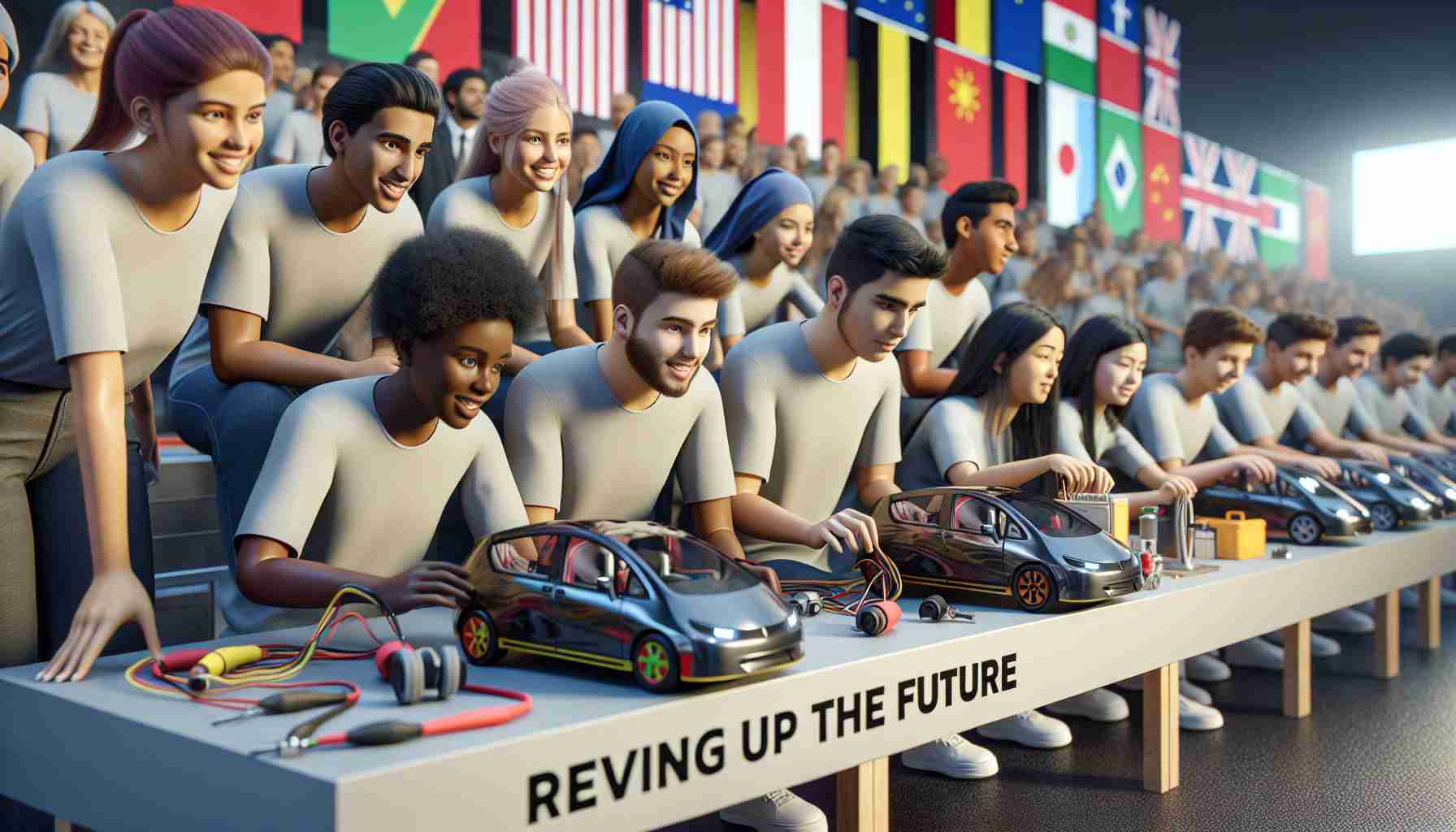In a remarkable collaboration, students across North America are taking giant strides toward becoming pioneers in electric vehicle technology. On November 1, 2024, a collection of bright minds gathered in Auburn Hills, Michigan, to receive the keys to 12 new 2024 Ram ProMaster electric vans. This event is part of the Battery Workforce Challenge, a unique partnership among the U.S. Department of Energy (DOE), Stellantis, and Argonne National Laboratory.
Chris Feuell, CEO of Chrysler and Ram Brand, and Stellantis’ Senior VP Mark Champine were present to distribute these high-tech vehicles to the enthusiastic students. These young innovators will dive into the complex task of designing, building, testing, and integrating advanced battery packs into the ProMaster EV vans.
The 2024 Ram ProMaster EV, an ideal platform for electrification, has been crafted with a unibody design to seamlessly incorporate new battery technologies. This makes it an excellent real-world learning platform for students aspiring to transform the future of commercial electric vehicles.
Launched in 2023, the Battery Workforce Challenge intimately connects 12 university teams from across North America with local community colleges, offering immersive, hands-on experiences. Participants are not only expanding their knowledge but are also bridging the gap between academia and industry.
Participants spent four engaging days in Bloomfield Hills, collaborating with experts and honing their engineering skills. The initiative is set to culminate in 2026 with a grand competition that promises significant accolades, including $100,000 in prize money and invaluable industry experience, aimed at transforming students into workforce-ready EV specialists.
The Unseen Impact: How Electric Vans Are Powering Up Careers and Communities
As the global focus shifts toward sustainable energy and transportation solutions, initiatives like the Battery Workforce Challenge are gaining attention for their dual impact on education and the environment. While the spotlight was on the grand event in Michigan where students received state-of-the-art electric vans, there’s a deeper narrative about how these efforts shape human lives and communities across the globe.
A Ripple Effect in Education and Career Development
The Battery Workforce Challenge is more than just an academic competition; it’s a launching pad for careers in the burgeoning electric vehicle (EV) industry. Participants are not only learning advanced technical skills but are also acquiring essential industry connections. This creates a direct pathway to employment in a rapidly evolving field that demands a new breed of skilled professionals. As industries worldwide grapple with a talent shortage in EV expertise, programs like this offer a lifeline to students by increasing employability and readiness.
Moreover, partnerships with local community colleges enhance accessibility, making it possible for a diverse group of students to engage in pioneering environmental and technological fields. There’s an excellent advantage in gaining real-world skills without the prohibitive costs of higher education traditionally associated with specialized engineering disciplines.
The Broader Community Impact
Beyond individual benefits, the initiative has far-reaching community implications. By fostering the next generation of innovators, this challenge helps local economies transition towards green technologies. As students integrate their learning into local communities, these areas can become testing grounds for new EV solutions, generating economic activity, and supporting local businesses engaged in sustainable practices.
Communities involved in such programs often see enhancements in local infrastructures, such as upgraded EV charging networks, which benefit residents at large and promote broader adoption of electric vehicles.
Ethical Implications and Societal Questions
However, as electrification grows, so do ethical considerations regarding battery production—is the environmental cost of battery materials offset by their potential to reduce carbon emissions? Viable solutions must be found to responsibly source and dispose of lithium and other critical elements vital for battery technology.
Furthermore, are these educational initiatives inclusive? There’s growing concern over ensuring equal opportunities for students from different socio-economic backgrounds to participate in such high-exposure programs.
Advantages and Disadvantages
The initiative undoubtedly presents numerous advantages: enhanced education, improved career prospects, local economic stimulation, and progress in sustainable technology adoption.
Yet, disadvantages exist, including the environmental cost of battery production and potential inequities in program accessibility. Also, regions heavily dependent on fossil fuels might resist shifts to electrification, creating societal tension.
What Does the Future Hold?
What happens when these students become industry leaders? They could drive international standards for EVs, influence global manufacturing norms, and advocate for eco-friendly policies, impacting worldwide transportation patterns. Yet, will they face resistance from entrenched interests in traditional automotive industries?
Ultimately, the Battery Workforce Challenge exemplifies a concerted effort to overcome such barriers. By investing in future talent and community engagement today, it molds a sustainable tomorrow.
For more information on electric vehicle initiatives and sustainable energy solutions, visit U.S. Department of Energy and Argonne National Laboratory.






















